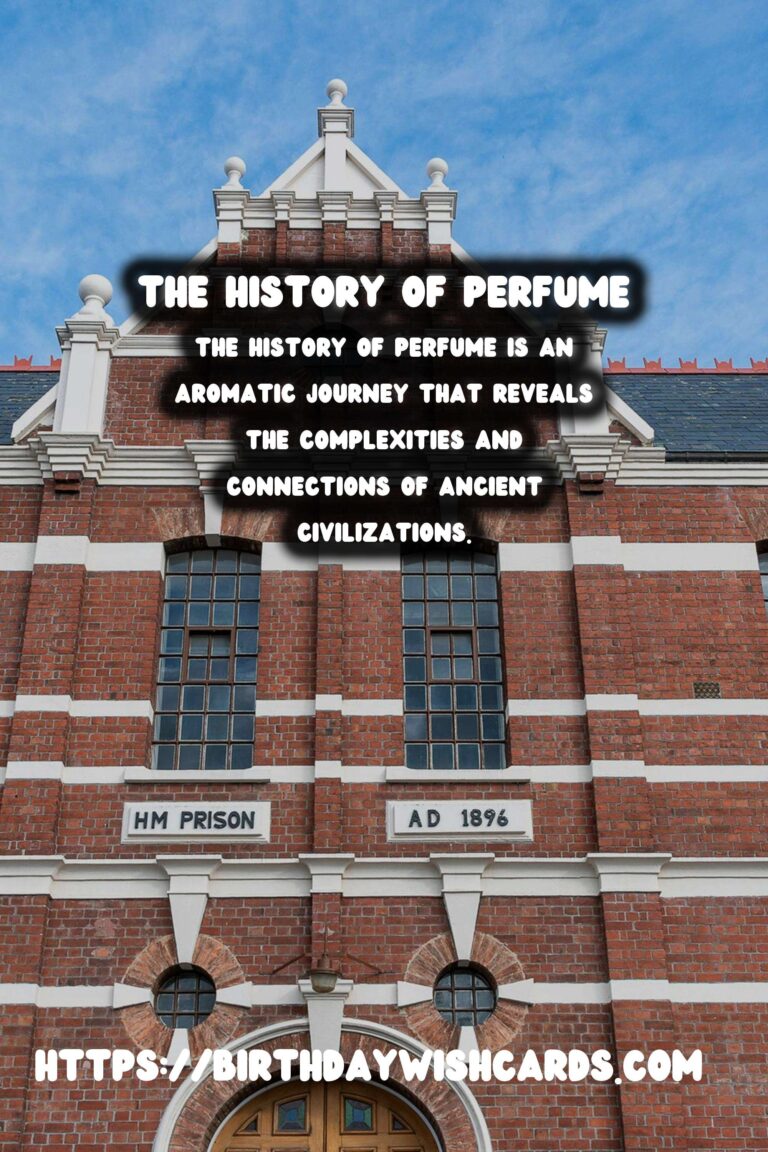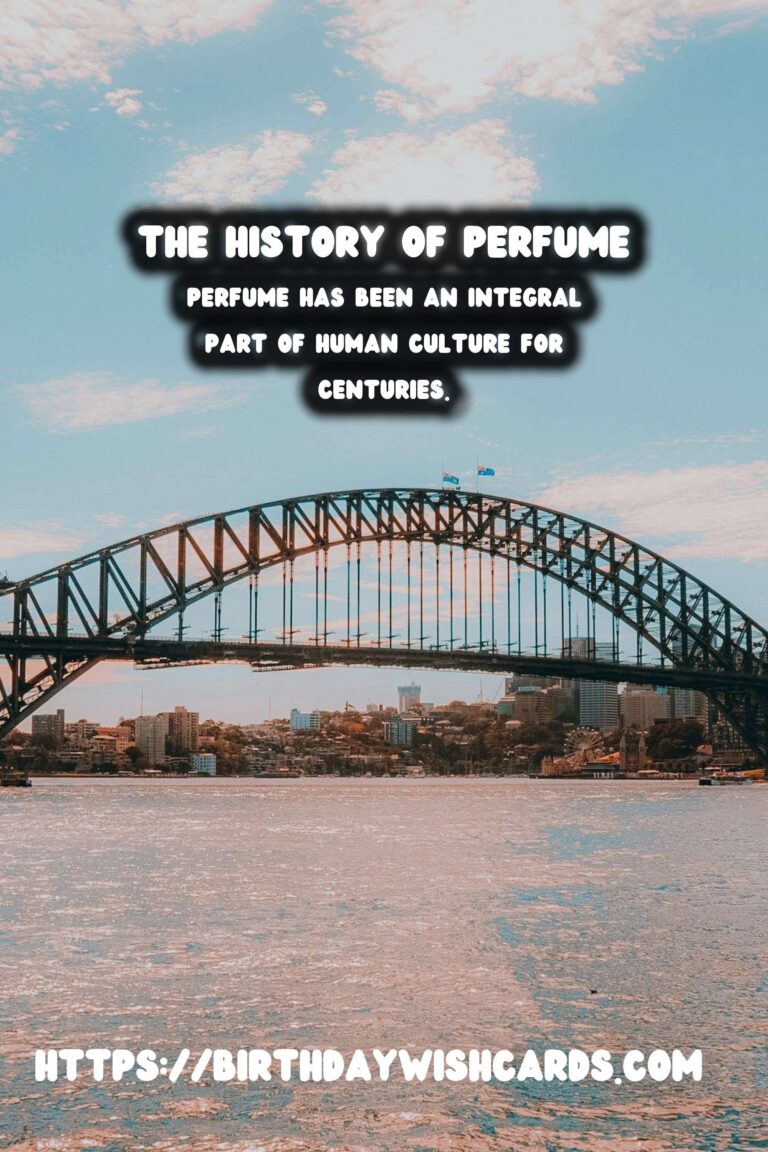
Perfume has been an integral part of human culture for centuries. Its history is as rich and varied as the civilizations that have utilized its alluring properties. Perfumes have been used for various purposes including religious rituals, personal adornment, and even medicinal purposes. In this article, we will explore the fascinating history of perfume across different ancient civilizations, shedding light on its development and significance throughout time.
Perfume in Ancient Egypt
The ancient Egyptians were among the first to integrate perfume in their daily lives. Around 3000 BC, perfumes were made from essential oils extracted from flowers, herbs, and spices. The Egyptians believed that perfumes had divine origins and used them in religious rituals and embalming processes to honor their gods and preserve the dead.
Perfume was also a symbol of status and wealth in Egypt. Pharaohs and high-ranking officials were often buried with lavish containers of oils and perfumes to assist in their journey to the afterlife. The Egyptians also pioneered the art of creating perfumes, with a keen focus on sustainable and aromatic blends.
Perfume in Mesopotamia
Moving to the cradle of civilization, Mesopotamia, perfumes played a significant role in social and religious contexts. The Mesopotamians were skilled in extracting scents from plants and flowers, a technique that was further refined by their priests, who served as early perfumers. Temples were often enveloped in a fragrant atmosphere from burning incense, which was considered a way to communicate with the divine.
Inscriptions and tablets from ancient Mesopotamia detail complex perfume recipes, underscoring the value placed on fragrance in Mesopotamian society. Perfumes were also used in medical treatments and as personal adornments among the elite.
Perfume in Ancient India
In ancient India, perfumes were deeply rooted in the cultural and spiritual life of its people. The art of perfume-making, known as Gandhayukti, dates back to the Vedic period. Scented oils and incense were used in religious rituals and ceremonies, as they were thought to purify the spirit and space.
Indian perfumes were primarily derived from flowers, spices, and herbs native to the region. These fragrances were renowned for their unique characteristic and were often traded with other ancient civilizations, hinting at the interconnectedness of the ancient world through the trade of perfumes.
Perfume in Ancient China
In ancient China, perfumes were an essential aspect of daily life, used to promote health, harmony, and well-being. Traditional Chinese medicine often incorporated fragrant herbs and plant extracts to treat ailments. Perfumes were also associated with courtship and romance, with scented sachets worn by both men and women to attract partners.
Chinese emperors favored elaborate recipes for perfumes, often requiring rare and precious ingredients. These perfumes symbolized power, grace, and divine favor, making them a staple in state ceremonies and imperial courts.
Perfume in Ancient Greece and Rome
Perfumes flourished in ancient Greece and Rome, where they were perceived as an art form. Greek mythology frequently references perfumes and fragrant oils, which were believed to be gifts from the gods. Greek perfumers were highly skilled, often incorporating a wide range of botanicals to create sophisticated fragrance profiles.
In Rome, perfumes played a crucial role in social and religious ceremonies. Romans imported exotic scents from across their empire, reflecting their cultural diversity and wealth. Roman society embraced perfumes as part of their daily regimens, using them in baths, massages, and even as room fresheners.
Conclusion
The history of perfume is an aromatic journey that reveals the complexities and connections of ancient civilizations. From Egypt to Rome, each civilization contributed to the development of perfumes, establishing a legacy that continues to influence modern perfumery. Through their scents, ancient cultures expressed divinity, status, and personal identity, leaving behind a fragrant heritage that still mesmerizes us today.
Perfume has been an integral part of human culture for centuries. The history of perfume is an aromatic journey that reveals the complexities and connections of ancient civilizations.
#History #Perfume

